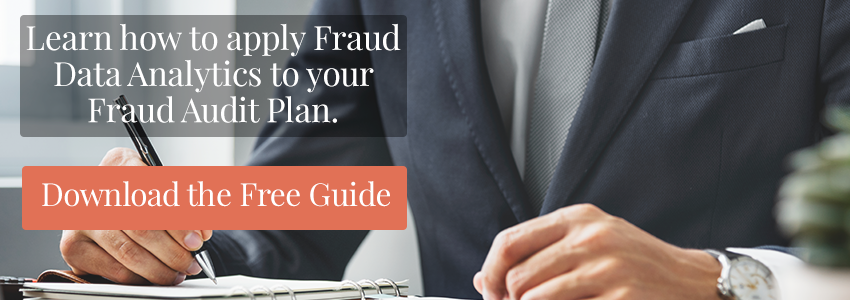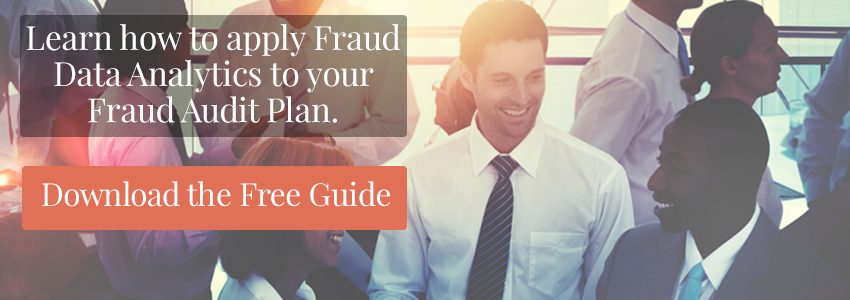-
Last month I wrote about the Top 100 Corporate Criminal List. So, this month I will write about the most ethical companies. If you are not aware, there is an organization, Ethisphere, that publishes a report each year listing the most ethical companies. I would encourage you to look at the report.
There is an old saying that serves as a good guide, “watch and learn” What do these ethical companies do that your company should be doing? There’s another old saying with good guidance, “Walk the talk.” It is one thing to have all the right policies and procedures, but without walking the talk, the documents are simply words on paper. So, I would like us to ponder the following question:
If everyone in your organization is of the highest personal ethics: Would you need an anti-fraud program to mitigate internal fraud?
During your educational journey in pondering this question, I would like you to consider two organizations that have two different perspectives but the same end goal: Ethisphere and the Department of Justice. In doing so, think about do you want the carrot or the stick?
Ethisphere is an organization that promotes ethical business practices. From their website:
In 2006, Ethisphere was founded on a simple premise—that those businesses that focus on the long term, commit to doing business with integrity, and invest in their communities will outperform their peers that do not.
While the world has changed since then, this commitment to supporting those companies that are focused on building a sustainable business—one that will continue to grow responsibly for many years—is what continues to define us as an organization.
Ethisphere chooses companies that have met rigorous criteria across five categories covering the quality of their ethics and compliance program, organizational culture, corporate citizenship and responsibility, governance, and leadership and reputation.
The Department of Justice is a government agency providing federal leadership in preventing and controlling crime. The Justice Department published a document called “Evaluation of Corporate Compliance Program." Within that 20-page document, are “three fundamental questions a prosecutor should ask”:
1. Is the corporation’s compliance program well designed? - 2. Is the program being applied earnestly and in good faith? In other words, is the program adequately resourced and empowered to function effectively?
- 3. Does the corporation’s compliance program work in practice?
-
So, what do these two organizations have in common? They're looking at tone at the top! I am relatively sure that all fraud professionals would say that tone at the top is the most important aspect of an anti-fraud program.
Now that you have taken your educational journey, let's circle back to the question: If everyone in your organization is of the highest personal ethics, would you need an anti-fraud program to mitigate internal fraud?
My answer is yes. The reason is simple. Today, all our employees may operate at the highest ethical standards. But tomorrow, due to motivations, pressures, and opportunities anyone could succumb to the evil side. Sound familiar? The fraud triangle! (opportunity, incentive, rationalization)
I recently read an article issued by the American Board of Forensic Accounting: A different approach to Detecting Fraud and Corruption: A Venn Diagram Fraud Model. It explored the interconnections of motivation and opportunity. In my opinion, the article is excellent and will expand your knowledge of why individuals or companies go to the dark side. It will also expand your understanding of fraud beyond the theft of assets. Lastly, the article explores the today-ethical and tomorrow-evil question - which is why fraud risk management is so important!
I am guessing that if we look at the most ethical companies, we would find that “their corporation's program is well designed. Look and learn. My second guess is that their program is “adequately resourced and empowered to function effectively.” Walk the talk.
But what about the third question: does the compliance program work in practice? My guess is that today it does. But what about tomorrow when the motivations/ incentives change and impact our manager’s decision processes? This is why fraud auditing is so important to your company’s fraud deterrence program and fraud detection program. A cornerstone of fraud auditing is the strategy of increasing the perception of detection.
Increasing the “perception of detection” is a fraud deterrence strategy that I whole hardly believe is an effective way of ensuring that management stays on the ethical path of business or as the audit profession likes to say, “Tone at the Top”. Let me explain why with a personal experience regarding the perception of detection.
A few days after September 11, I was driving to Rochester NY for an engagement. You should know I am not a fast driver, but on this day all drivers on the road seemed to be driving over 90 miles an hour. So, I said to myself, why? Then it dawned upon me; all the state police were in NYC and no state police were monitoring the speed limit. In other words, the perception of detection was so low that it seemed safe to violate the speed limit. Drivers who would not ordinarily speed “today” were willing to speed “tomorrow” when the pressures and motivations were aligned with the stars and the fear of detection was so low.
I believe when an individual decides to take the unethical path, one of their thought processes will be: Will I get caught? If pressure/motivation is low, then getting caught may be a factor that diminishes the likelihood of someone committing the unethical decision. But as the motivations, pressures, and benefits grow, then the fear of detection becomes even more important. If there is little fear of detection, then why not commit the unethical business practice to obtain the benefits?
As you know, I am an advocate for fraud auditing. I hope you are. And, I think fraud auditing is an integral aspect of an anti-fraud program if you are serious about increasing the perception of detection.
If you are not convinced about the importance of Tone at the Top and fraud auditing, then let me use a quote from a Hollywood movie: “Show me the money.”
According to Industry Week: Making the Top 100 Most Ethical Company list translates to improved financial performance. The group tracks how the stock prices of publicly traded honorees compare to the Large Cap Index and found that companies listed World’s Most Ethical Companies outperform large-cap sector over five years by 14.4% and over three years by 10.5%
Watch and learn!
Fraud Auditing, Detection, and Prevention Blog
Topics: Fraud Risk Identification, Fraud Auditing

Written by Leonard W. Vona
Leonard W. Vona has more than 40 years of diversified fraud auditing and forensic accounting experience. His firm, Fraud Auditing, Inc., advises clients in areas of fraud risk assessment, fraud data analytics, fraud auditing, fraud prevention and litigation support.




